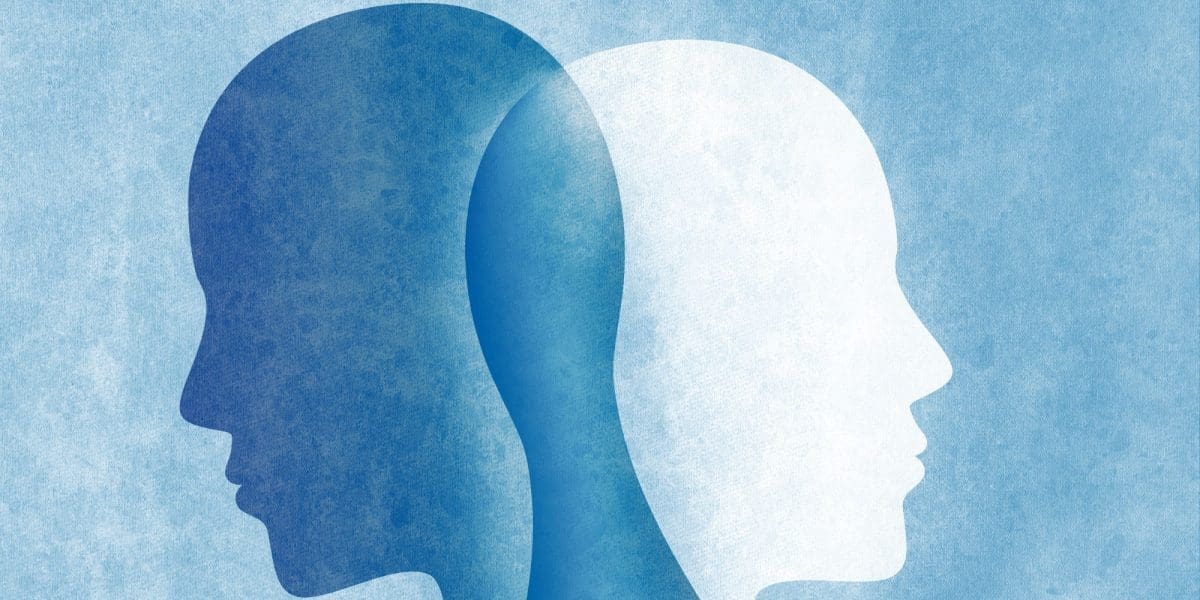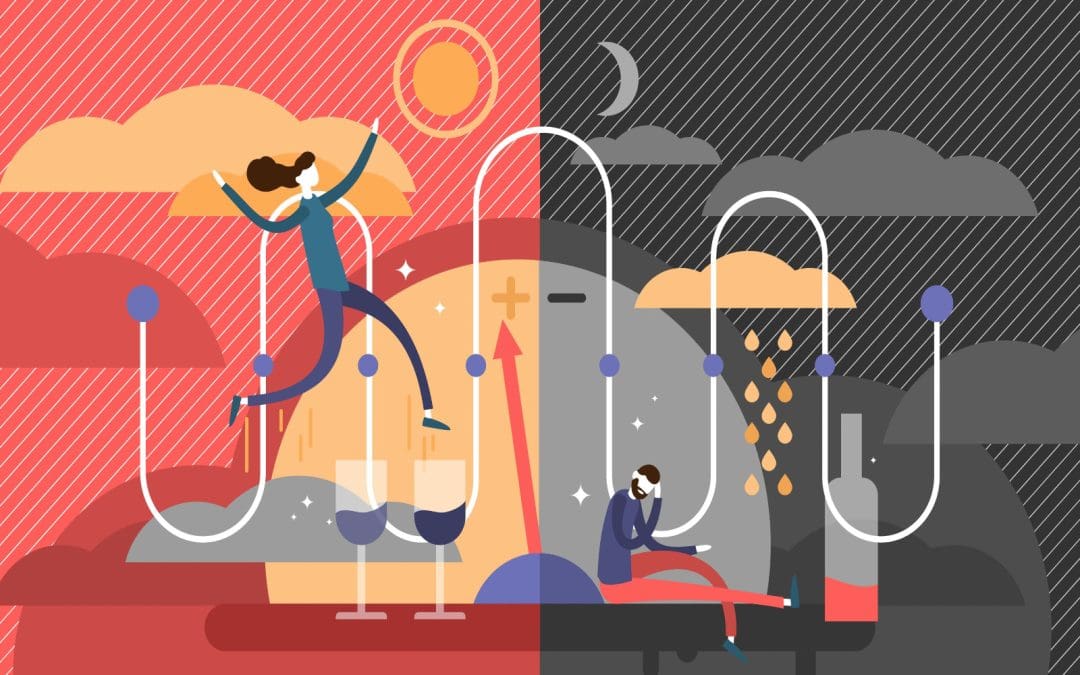You’re not alone when it comes to searching for the right bipolar disorder treatment. Thankfully, there are treatment centers in Florida that have the resources to help struggling adults. One of these treatment centers is The Willough at Naples. Here, treatment options are tailored to each patient’s needs to provide the best care. You don’t have to manage your disorder alone.
The Different Types of Bipolar Disorder

Bipolar disorder is divided into four groups, each type characterized by different symptoms. Individuals can find the best bipolar disorder treatment according to their specific diagnosis. In order to receive a diagnosis, individuals are assessed by medical staff. This will determine the appropriate level of care needed. As a result, people can find a treatment plan that works best for managing their symptoms.
Bipolar I Disorder
This type is characterized by episodes of mania and depression. Put simply, mania is defined by an extremely elevated and unstable mood that can interfere with relationships and daily functioning. Manic episodes typically last a minimum of seven days with depressive episodes lasting at least two weeks. For this condition, the best bipolar disorder treatment will focus on stabilizing these extreme emotions.
Bipolar II Disorder
This type is characterized by depressive and hypomanic episodes without the experience of manic episodes. However, episodes of hypomania are less severe than manic episodes experienced with type I. Additionally, depressive episodes may be more severe, often mimicking clinical depression or major depressive disorder. As a result, individuals with type II are more frequently misdiagnosed, and subsequent treatment plans lack treatment for hypomania that are included in the best bipolar disorder treatment plans.
Cyclothymic Disorder
This type is a less severe form of bipolar disorder. Individuals with this cyclothymic disorder experience chronic and unstable moods with periods of hypomania or depression lasting two years. Although there are brief periods of euthymia, a state without mood disturbances, these periods tend to only last for eight weeks.
Bipolar Disorder NOS (Not Otherwise Specified)
The “not otherwise specified” category is for individuals who don’t meet the criteria for the other types of the disorder. Although it is characterized by similar bouts of mood elevation and depression, this category doesn’t fall within the same intervals. Due to its undefinable nature, the best bipolar disorder treatment for this condition often comes down to the individual.
Symptoms of Bipolar Disorder
The symptoms of bipolar disorder vary according to the type and its severity. And as a result, the best bipolar disorder treatments can vary depending on what type of bipolar symptoms you’re trying to treat. To help you better understand this mental health condition, we’re going to take a deeper look into manic and depressive episodes as well as what happens when these feelings collide.
Signs and Symptoms of a Manic Episode
Some people with bipolar disorder experience episodes of mania or hypomania periodically throughout their life, while others rarely experience them. The signs and symptoms of a manic episode include:
- Feelings of excessive happiness or euphoria
- Sudden and severe mood swings
- Restlessness
- Rapid speech
- Racing thoughts
- Trouble sleeping due to heightened energy
- Impulsivity and poor judgment
- Recklessness
- Psychosis (can be experienced in the most severe manic episodes)
Signs and Symptoms of a Depressive Episode
The symptoms experienced during a depressive episode are comparable to symptoms of major depression. These symptoms include:
- Overwhelming sadness
- Low energy or fatigue
- Lack of motivation
- Inability to concentrate
- Changes in appetite
- Sleeping too little or too much
- Irritability
- Withdrawal
- Suicidal thoughts
Signs and Symptoms of a Mixed Episode
Mixed episodes are characterized by symptoms of mania and depression occurring at the same time or rapid cycling without a recovery period in between. For people seeking bipolar disorder treatment, having conflicting symptoms can make receiving a diagnosis especially difficult. During these periods, individuals tend to experience negative thoughts and feelings in addition to agitation, restlessness, and heightened energy. These symptoms last for a week or longer, sometimes all day or for a majority of the day.
Bipolar Disorder Treatment Options

Although there is no cure, there are a variety of ways to treat the different types of bipolar disorder. Individuals benefit from a combination of bipolar disorder treatment methods depending on their symptoms and recovery goals. The Willough at Naples provides adult mental health programming to help people with bipolar disorder gain control over their symptoms.
Medication
A common form of bipolar disorder treatment includes medication. Which type of medication is best suited for managing symptoms depends on the type of bipolar disorder and the severity of the symptoms.
- Mood stabilizers: Can take up to two weeks to start working but they help stabilize mood swings, especially phases of mania. They are taken daily on a long-term basis.
- Antidepressants: Are typically prescribed in combination with a mood stabilizer to prevent triggering a manic episode. However, they can be used to treat depressive episodes.
- Antipsychotics: Work more quickly than mood stabilizers by balancing symptoms of mania or depression within hours. Antipsychotics are frequently paired with mood stabilizers or antidepressants. However, they can sometimes be cut out of the medication regimen in the long run.
Medication is often necessary to help individuals mitigate symptoms of bipolar disorder. Since medication comes with side effects, it’s important to work with your physician to find the right medication and dosage. Some side effects can be temporary and only last until your body adjusts to the medication’s effects. As a result, The Willough at Naples provides voluntary medication management services to patients who want it as part of their treatment plan.
Psychotherapy
Psychotherapy or “talk therapy” is an effective bipolar disorder treatment, especially when paired with medication. This type of therapy helps individuals with a broad range of mental illnesses, including bipolar disorder, understand and manage their symptoms. Patients talk about their emotions and experiences to function more healthily. Some common categories of psychotherapy used to treat bipolar disorder include:
- Cognitive behavioral therapy (CBT): Focuses on how patients manage their symptoms by altering the way they think and behave in response to them. Patients develop coping skills after identifying patterns of thought and behavior they can control.
- Group therapy: Is led by a mental health professional and allows a group of individuals facing similar struggles to share their experiences. These groups help individuals form a community as they undergo similar treatments for bipolar disorder.
- Family therapy: Includes family members and spouses in the treatment plan can be beneficial. When family members know about the disorder and how it manifests, they can better understand the experience, which can help patients maintain a healthy lifestyle in the long run.
Substance Abuse Treatment
Using drugs or alcohol to treat bipolar disorder symptoms yourself can be dangerous. Specifically, drugs and alcohol can contribute to the extreme emotional highs and lows of bipolar disorder. For this reason, it’s vital to stop drinking or using drugs if you are using them to self-treat bipolar disorder symptoms. If you’re struggling with battling addiction and bipolar disorder, a dual diagnosis program could be the right bipolar disorder treatment for you.
Substance use disorders (SUDs) are commonly associated with bipolar disorder. Many individuals struggling with bipolar disorder turn to substance abuse for bipolar disorder treatment rather than seeking professional help. In addition, those who have a SUD are at a higher risk of developing a mood disorder such as bipolar disorder. Withdrawal symptoms can also mimic symptoms of bipolar disorder, making the problem harder to identify without professional treatment.
Finding The Right Bipolar Disorder Treatment in Florida
It’s okay to need help finding the right bipolar disorder treatment to manage your symptoms. The Willough at Naples provides a variety of treatment options led by a team of experienced mental health workers. Don’t hesitate to call the admissions office at (239) 688-3063 or fill out a confidential contact form if you have any questions about our inpatient care services. The right treatment can make all the difference.

